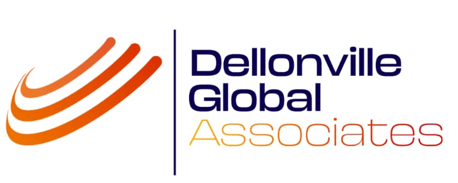How to cultivate a habit of self-improvement
We all know that feeling of wanting to become the best version of ourselves while unsure how to get started. It is easy to get lost in the saturated self-improvement content available online, so much so that it can start to feel overwhelming and daunting. But what if it didn’t have to be? What if cultivating a habit of self-improvement became simple and enjoyable instead? In this blog post, we will discuss practical steps and tips you can use in your life right now on creating a consistent routine focused on bettering yourself every day. Get ready for some easy but helpful advice; because there’s nothing like feeling powerful after taking control of your future!
SELF-DEVELOPMENT AND PERSONAL EFFECTIVENESS
For personal effectiveness to increase, you need to cultivate a habit of self-improvement. You must constantly find new ways to grow and improve as a person. If you choose to remain stagnant your effectiveness will not remain stagnant rather it will decrease over time. So, the call for growth and maximizing your potential can never be fulfilled. It requires you to intentionally channel energy and time towards picking up new skills and abilities that will enable you to always perform at a high level.
Here are some ways to spark sell-improvement:
Set Development Goals:
Before you start any journey, you should have a destination. The same thing applies to self-development. It’s a process that requires careful planning and well-defined goals. Before you begin, to see. These goals would guide you and motivate you to grow as a person and increase your effectiveness.
The goals you set shouldn’t be arbitrary. They should follow the SMART acronym. That means they are Specific, Measurable, Achievable, Realistic, and Timely. Your goal shouldn’t be to become better, it should be to improve at a specific skill within a specific time. If they aren’t time bound, you stand the risk of procrastination and laziness. Your goals should also be realistic. To improve, you have to define what that improvement looks like.
Mental Growth:
If you are not absorbing new knowledge other aspects of your development become irrelevant. Increasing your mental capacity is a fundamental part of self-development. The best way to do this is by reading books and studying materials that will expand your mindset. Reading gives you access to information that reshapes your mentality and gives you new perspectives on life and career. You can also find tips for growth in books and other materials online such as this one. Develop the habit of study and reading and watch the changes you will experience.
Consistency:
Development requires consistency. If you are learning a new skill and you try it only once you would never master it. Rather, by repeated efforts over time, you will see constant improvement and achieve your goals. Growth does not happen instantly and you must put in the required effort consistently.
Improving your consistency is a sign of development. Because until you can patiently and continuously work towards a goal you won’t be able to increase personal effectiveness. Begin to put in consistent efforts to increase your capacity.
Circle of Influence:
The people around you can either impede or speed up your growth. On the journey of self-development, you need to make careful decisions about your associations. So as you improve yourself you should also build strategic relationships that would lead to your growth. The friends you keep should lead to positive changes in your life. If your relationships are with people who aren’t trying to grow then you can be sure that you also wouldn’t experience development.
To build these connections you must build your value and be intentional about making an impact in the lives of others. This will automatically attract like-minded individuals into your circle of influence.
Character Development:
Attitude is everything. No matter the skills you cultivate, if you don’t develop your character along the way, you will not experience meaningful growth. Your behavior can stagnate and reduce your effectiveness. It will reduce your ability to collaborate and will rob you of opportunities to progress in your career. If you don’t pay attention to your character flaws and work on improving them, they will affect your ability to accomplish your goals.
You can build character by being self-aware first and foremost. Meaning, you scrutinize your actions and behaviors to see when you might have let pride, anger, greed, jealousy, or any other emotional issues affect your judgment. You must also be truthful to yourself without being too harsh. You must be willing to accept your faults and work on them. When you have built that self-control, you will be ready to experience another dimension of growth.
The 30-by-30 approach:
This point is to show you how to develop the skills and habits that you believe are essential to your success. The 30-by-30 principle asks you to pick a new task or skill and spend 30 minutes learning it or doing it for the next thirty days. It was first theorized by Sahil Bloom an empowerment coach. This approach is useful because it asks you for consistency which was discussed earlier. When you put in that repeated effort over thirty days, you will begin to see results. Also, the commitment it asks of you is just thirty minutes of your time each day.
The task might be to read for 30 minutes each day. It could be to knit, bake or jog. All that matters is that for 30 minutes daily you will spend time working on one of the development goals you have set for yourself. This principle is a game-changer. If you can commit 30 minutes to improve yourself in a particular area for the next 30 days, you will experience massive results.
How intentional have you been about your self-development? If you want to experience growth in your career or business then you must be committed to improvement. As a business owner, you can increase your leadership qualities. As an employee, you can learn skills that will differentiate you from your colleagues. The most important thing is that you are learning because if you aren’t learning you are not growing.
ACTION POINT: Set your development goals, then spend thirty minutes daily working on them.





